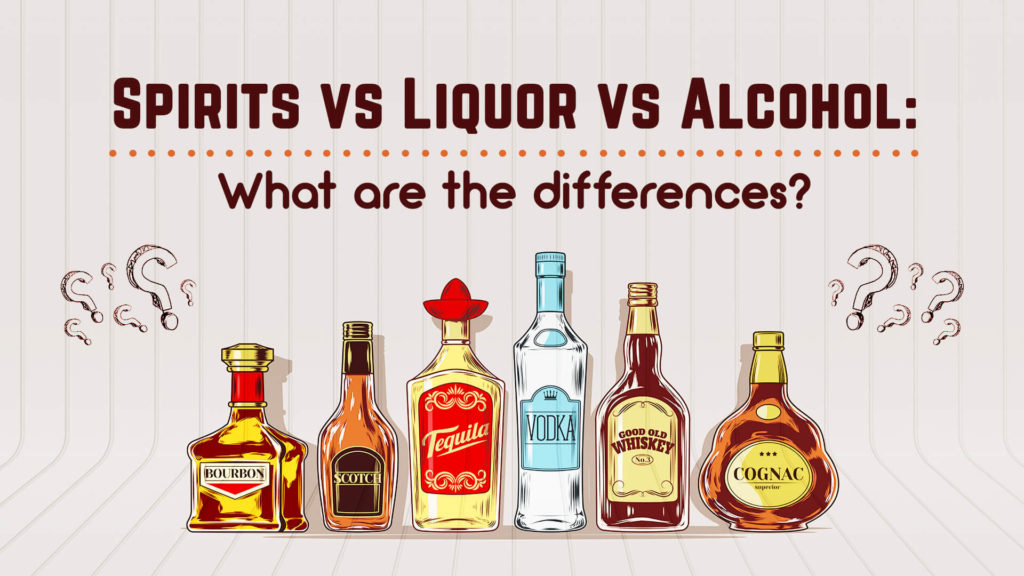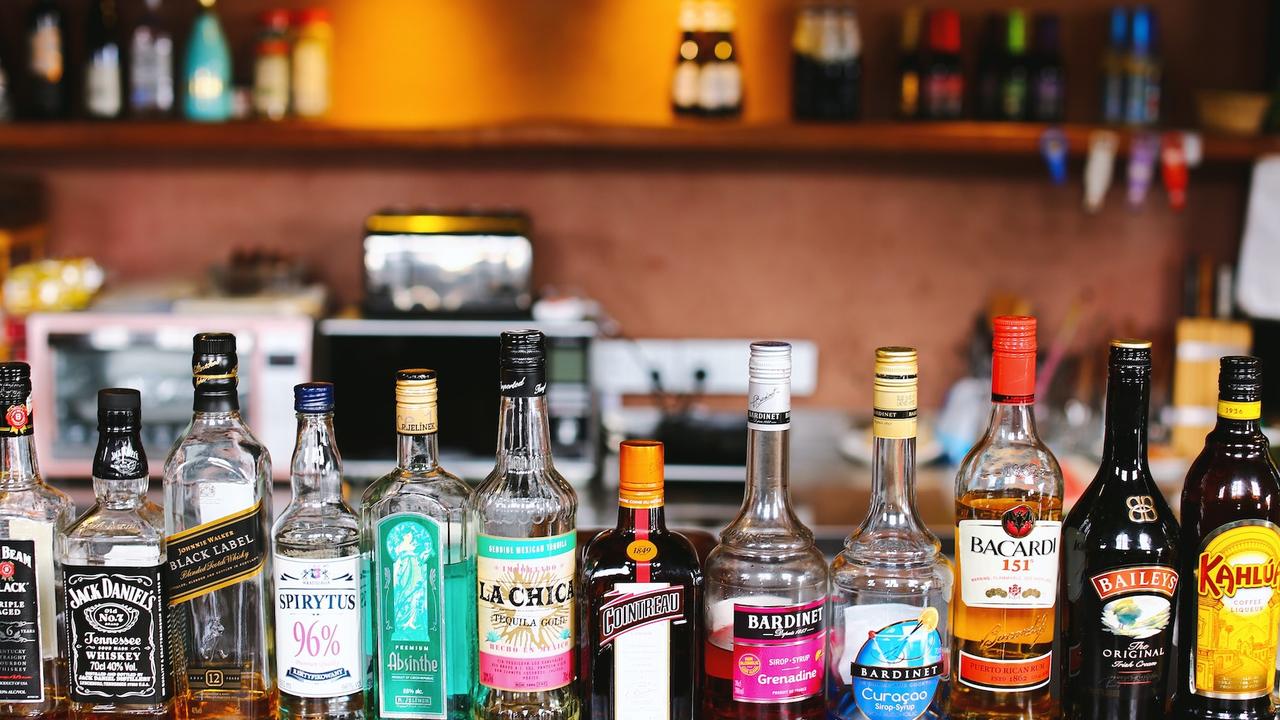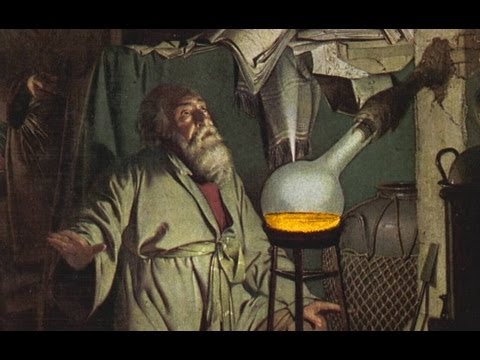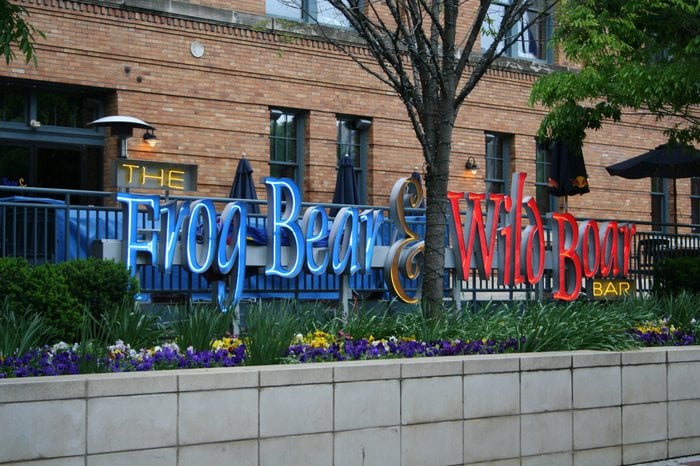The Origins Of The Term Spirits

The term “spirits” has its roots in the Latin word “spiritus,” which translates to “breath” or “spirit.” In medieval alchemy, the word “spiritus” was used to describe substances obtained through distillation, believed to possess powerful and volatile properties. As the practice of distillation gained prominence, the term “spirits” began to be associated with distilled alcoholic beverages. The concept of spirits also has ties to religious and spiritual beliefs, as alcoholic beverages were seen as being infused with a divine essence. Today, the term “spirits” is widely used to refer to a wide range of distilled alcoholic drinks.
The History And Etymology Of The Word Spirits
The term “spirits” can be traced back to its Latin root, “spiritus,” which translates to “breath” or “spirit.” In medieval alchemy, “spiritus” referred to substances obtained through distillation, believed to possess powerful and volatile properties. As distillation techniques evolved, the term “spirits” became associated with distilled alcoholic beverages. It also carries connotations of divine essence, reflecting the spiritual beliefs of the time. Today, “spirits” is widely used to encompass a range of distilled alcoholic drinks, representing their historical connection to alchemy and mysticism.
Connection Between Alchemy And The Term Spirits
Alchemy played a significant role in the development of the term “spirits.” In medieval alchemy, the word “spiritus” was used to describe substances obtained through distillation, which were believed to possess volatile and powerful properties. Alchemy sought to transform base materials into more refined and purified forms, including the distillation of alcoholic beverages. This connection between alchemy and the production of distilled spirits led to the association of the term “spirits” with these alcoholic drinks. The mystical and transformative aspects of alchemy further emphasized the spiritual and divine essence attributed to spirits.
Distillation And The Birth Of The Term

Distillation played a crucial role in the emergence of the term “spirits.” The process of distillation involves heating a liquid and collecting the condensed vapor to separate its components. This technique was developed in ancient times and was used to extract aromatic essences and medicinal compounds. As distillation techniques advanced, the production of distilled alcoholic beverages became more widespread. The term “spirits” was then used to describe these alcoholic beverages produced through distillation, distinguishing them from other fermented drinks. The invention of distillation gave rise to a new category of potent and concentrated alcoholic drinks, thus giving birth to the term “spirits.”
The Role Of Distillation In The Development Of Spirits
Distillation played a crucial role in the development of spirits. Through the process of distillation, a liquid is heated and its vapor is collected and condensed, separating its components. This technique was first used to extract aromatic essences and medicinal compounds. As distillation techniques advanced, it became possible to produce concentrated alcoholic beverages with higher alcohol content. This led to the emergence of spirits as a distinct category of alcoholic drinks. The invention of distillation revolutionized the production of alcohol and gave birth to the term “spirits” to describe these potent and concentrated beverages.
Early Spirits And Their Significance In Different Cultures
Early spirits played a significant role in various cultures throughout history. In ancient civilizations such as Egypt and Mesopotamia, spirits were believed to have supernatural powers and were used in religious ceremonies and rituals. In China, spirits were associated with ancestral worship and were used to communicate with spirits and deities. Native American cultures had their own traditional spirits, such as “firewater,” a distilled beverage used in ceremonies and as a form of social bonding. These early spirits not only provided a source of intoxication but also held cultural, religious, and social significance in different societies.
Spiritual Connotations

The term “spirits” has a strong connection to spiritual beliefs and practices. In many cultures, alcoholic beverages were believed to have a spiritual essence or connection to the divine. It was thought that consuming spirits could bring about a transcendent experience or serve as a means of communication with the spiritual realm. This association between spirits and spirituality can be seen in rituals and ceremonies where alcohol is used as an offering or as a tool for worship. The spiritual connotations of spirits highlight their significance beyond mere intoxication, adding a deeper layer of meaning to these beverages.
The Association Between Spirits And Religious Practices
The association between spirits and religious practices dates back to ancient times. Many cultures believed that alcoholic beverages had a spiritual essence or connection to the divine. In various rituals and ceremonies, alcohol was used as an offering or a means of communication with the spiritual realm. The consumption of spirits was thought to bring about a transcendent experience or serve as a tool for worship. This connection between spirits and spirituality adds a deeper layer of meaning to these beverages, highlighting their significance beyond mere intoxication. References to this spiritual connotation can be found in religious texts and traditions throughout history.
Exploring Spiritual Beliefs And The Connection To Alcoholic Beverages
Throughout history, alcoholic beverages have been intricately intertwined with spiritual beliefs and practices. Many cultures and religions have incorporated alcohol into their rituals, seeing it as a means of connecting with the divine realm. From ancient civilizations offering libations to their gods to the sacramental wine in Christian Eucharist, alcohol has played a significant role in spiritual ceremonies. It is believed that alcohol can alter one’s consciousness and open a gateway to the spiritual realm, leading to a deeper understanding of the self and the divine. This connection between spirits and spirituality adds a profound and transcendent dimension to the consumption of alcoholic beverages.
The Concept Of Alcohol As A Spirit

The concept of alcohol as a spirit goes beyond its physical properties and delves into its metaphorical representation. In various cultural and literary contexts, alcohol has been personified as a spirit, embodying its transformative effects on the human psyche. This association highlights the belief that alcohol can awaken or unlock a spiritual dimension within individuals. Throughout history, references to alcohol as a spirit can be found in religious texts, folklore, and artistic expressions. This metaphorical understanding adds depth and mystique to the consumption of alcoholic beverages, inviting contemplation and reflection on the transcendental nature of the human experience.
Understanding The Metaphorical Representation Of Alcohol As A Spirit
Alcohol has long been metaphorically referred to as a spirit, symbolizing its transformative effects on the human psyche. This concept delves beyond the physical properties of alcohol and explores its deeper spiritual connotations. By personifying alcohol as a spirit, it suggests that consumption can awaken or unlock a spiritual dimension within individuals. This metaphorical understanding adds depth and mystique to the act of drinking, inviting contemplation and reflection on the transcendental nature of the human experience. Cultural and literary references throughout history further emphasize the belief in the spiritual power of alcohol.
Cultural And Literary References To Alcohol As A Spirit
Cultural and literary references throughout history have further emphasized the belief in the spiritual power of alcohol. In ancient Greek mythology, the god Dionysus was associated with wine and seen as a divine spirit. In literature, authors like Ernest Hemingway and F. Scott Fitzgerald often depicted alcohol as a catalyst for revelation and self-discovery. Additionally, cultural practices such as toasting and the use of alcohol in religious ceremonies further reinforce the spiritual nature of alcohol. These references in various forms of art and culture contribute to the enduring association between alcohol and spirituality.
Difference Between Spirits And Other Alcoholic Beverages

Spirits, also known as liquors, differ from other alcoholic beverages such as wine and beer in several ways. Here are some key distinctions:
- Distillation: Unlike wine and beer, spirits undergo the process of distillation, which involves heating and condensing a liquid to increase its alcohol content. This concentrated form of alcohol gives spirits their characteristic potency.
- Alcohol content: Spirits generally have a higher alcohol content than wine and beer. While wine typically contains 12-15% alcohol and beer ranges from 4-6%, spirits can have alcohol percentages as high as 40-50%.
- Flavor profile: Spirits often have a more intense and concentrated flavor profile compared to wine and beer. This is due to their higher alcohol content and the use of various ingredients and botanicals during the distillation process.
- Usage: Spirits are commonly used as a base for cocktails and mixed drinks, whereas wine and beer are often enjoyed on their own or paired with food.
- Aging process: Unlike wine and beer, many spirits can be aged in wooden barrels, which imparts unique flavors and characteristics to the final product.
Overall, spirits stand out for their higher alcohol content, distinct flavor profiles, and their popularity in cocktail culture.
Contrasting Spirits With Wine, Beer, And Other Alcohol Types
Spirits, also known as liquors, differ from other alcoholic beverages such as wine and beer in several ways. Firstly, spirits undergo the process of distillation, which increases their alcohol content significantly. While wine typically contains 12-15% alcohol and beer ranges from 4-6%, spirits can have alcohol percentages as high as 40-50%. Secondly, spirits often have a more intense and concentrated flavor profile, thanks to their higher alcohol content and the use of various ingredients and botanicals during distillation. Additionally, spirits are commonly used as a base for cocktails and mixed drinks, whereas wine and beer are often enjoyed on their own or paired with food. Lastly, many spirits can be aged in wooden barrels, which adds unique flavors and characteristics to the final product. These distinctions make spirits stand out in terms of their strength, flavor, and versatility in mixology.
Defining Characteristics That Set Spirits Apart
Spirits, also known as liquors, have defining characteristics that distinguish them from other alcoholic beverages. Here are a few key features that set spirits apart:
- Higher alcohol content: Spirits undergo the process of distillation, resulting in a significantly higher alcohol percentage compared to wine and beer. Spirits can range from 40-50% alcohol by volume, making them much stronger.
- Concentrated flavor profile: The higher alcohol content in spirits enhances their flavor, creating a more intense and concentrated taste. Various ingredients and botanicals used during distillation contribute to the unique flavor profiles of different spirits.
- Versatility in mixology: Spirits are frequently used as the base for cocktails and mixed drinks. Their diverse flavors and strengths make them ideal for creating a wide range of delicious and creative cocktails.
- Ageing potential: Many spirits, such as whiskey and rum, can be aged in wooden barrels. This ageing process adds complexity, depth, and unique flavors to the spirits, making them even more distinctive.
These characteristics make spirits stand out as a category of beverage, offering strength, flavor, and versatility in the world of alcohol consumption.
The Modern Usage Of The Term Spirits

In modern usage, the term “spirits” has become synonymous with distilled alcoholic beverages. It is commonly used to refer to a wide range of spirits, including vodka, gin, rum, whiskey, and tequila. The term is widely used in the alcohol industry to categorize and market these beverages. Spirits brands often emphasize their unique flavors, qualities, and production methods to differentiate themselves in a competitive market. Whether enjoyed straight, on the rocks, or as part of a cocktail, spirits continue to be a popular choice for those looking to savor the distinct flavors and characteristics they offer.
How The Term Spirits Is Used In The Contemporary Alcohol Industry
In the contemporary alcohol industry, the term “spirits” is widely used to categorize and market distilled alcoholic beverages. It has become synonymous with a wide range of spirits, including vodka, gin, rum, whiskey, and tequila. Spirits brands utilize this terminology to emphasize their unique flavors, qualities, and production methods. The term is often used to differentiate these beverages from other alcohol types such as wine and beer. Whether enjoyed straight, on the rocks, or as part of a cocktail, spirits continue to be a popular choice for individuals looking to savor the distinct flavors and characteristics they offer.
Exploring Different Spirit Categories And Their Characteristics
In the contemporary alcohol industry, spirits encompass a wide range of categories, each with its own distinct characteristics and production methods. Some popular spirit categories include vodka, known for its neutral flavor and versatility in cocktails; gin, characterized by its botanical and herbal notes; rum, with its rich and tropical flavors; whiskey, showcasing a range of smoky, sweet, or fruity profiles; and tequila, celebrated for its agave-forward taste. Each category offers unique flavor profiles, allowing consumers to choose spirits that suit their preferences and complement their favorite drinks. The diversity within the spirit category ensures that there is something for every palate to enjoy.
Frequently Asked Questions: Why is Alcohol Called Spirits?
Q: Why is alcohol referred to as “spirits”?
A: The term “spirits” is derived from the Latin word “spiritus,” which means breath or soul. It was used to describe distilled alcoholic beverages because it was believed that the distillation process captured the essence, or spirit, of the original substance.
Q: What is the historical origin of the term “spirits” for alcohol?
A: The origins of the term can be traced back to ancient Greece. The Greek philosopher and physician, Galen, used the word “spirits” (pneuma) to describe the vapors produced during the distillation process. This concept was later adopted by European alchemists during the Middle Ages.
Q: How does the distillation process relate to the term “spirits”?
A: Distillation involves heating a liquid, such as wine or beer, to produce steam, which is then condensed to create a more concentrated alcoholic beverage. It was believed that spirits, in the form of vapors, were being released during this process, giving rise to the name “spirits.”
Q: Are there any cultural or religious references associated with the term “spirits” for alcohol?
A: Yes, the concept of spirits extends beyond the scientific understanding of distillation. Throughout history, many cultures have believed that alcoholic beverages contain the ethereal essence of the ingredients used, and consuming them can lead to altered states of mind or spiritual connection.
Q: Why are certain types of distilled alcohol specifically referred to as “spirits”?
A: The term “spirits” is most commonly associated with distilled beverages such as whiskey, vodka, gin, and rum. This is due to the fact that these drinks are produced through a distillation process that involves capturing the concentrated essence, or “spirit,” of the base ingredients.
Q: Are there any other terms used to refer to alcoholic beverages?
A: Yes, there are numerous terms used to describe alcoholic beverages. Some common examples include liquor, booze, hooch, tipple, and libation. These terms often vary depending on regional dialects or colloquialisms.
Q: Is there any significance to using the term “spirits” when talking about alcohol?
A: While the term “spirits” is primarily a historical and cultural designation, it adds an element of mystique and intrigue to discussions surrounding alcoholic beverages. It invokes notions of transformation and potency, which can contribute to the overall experience and perception of consuming these beverages.
In summary, the term “spirits” originated from the Latin word “spiritus” and was associated with the ethereal essence captured during the distillation process. While it holds historical and cultural significance, the term adds a touch of intrigue to conversations about alcohol, making them more interesting and engaging.

Frog Bear & Wild Boar is a vibrant and dynamic establishment located at 343 N Front St. in the heart of the Arena District in Columbus, OH. Our story began with a passion for creating an inviting and lively environment where friends, families, and colleagues can come together to enjoy great food, refreshing drinks, and fantastic entertainment. Founded on the principles of warm hospitality, delicious cuisine, and a commitment to community, Frog Bear & Wild Boar has become a beloved gathering place for locals and visitors alike. Our dedication to delivering exceptional experiences has earned us a reputation for being a go-to destination for memorable outings and special occasions.